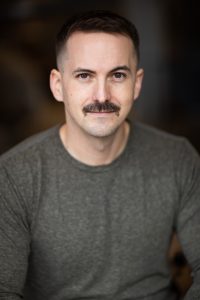I have been a mental health counselor since I graduated in September 2013 with a Master’s in Clinical Mental Health Counseling from Antioch University Seattle. My professional counseling experience includes work with LGBTQIA people, homeless youth and adults, people with chronic mental illness, and people who have been incarcerated or sentenced for criminal charges. Liberation, connection, and aliveness are core values in my work. I honor the search for meaning and deep connection and recognize it takes a variety of forms.

I affirm our innate right to determine our sexual, romantic, and gender identities; to choose the relationships that affirm us; and to explore our sexuality, romantic love, and friendship needs through consensual, loving, conscious, and mature connections. We have an innate right to autonomy in creating a life that reflects our experience of self, and experiencing coercion in any direction disrupts that autonomy. It is not my job to decide for you what is your gender or sexual orientation—that is for you. My job is to help you explore your thoughts and feelings, as well as your options, and determine the best path forward.
I have a Master of Arts in Clinical Mental Health Counseling from Antioch University Seattle. I practice in Seattle, Washington, via telehealth. I am a Licensed Mental Health Counselor (LH60608531).
My undergraduate degree was a Bachelor’s of English with a concentration of Creative Writing in Fiction. For five years, I worked as an editor for traditional print, commercial, and online content such as eLearning. As a result of the recession of 2008, I spent time working as a gas station attendant and Barista while working through graduate school. Creative writing is my first love, and my poetry, fiction, and nonfiction have been published in print and online media under the name Anthony Rella.
I am a Certified Internal Family Systems therapist, having completed Level I and II trainings, and Level 1 training in the Gottman Method.
As a member of the American Counseling Association, I adhere to their code of ethics. Should you have any problems with me, the ACA is one recourse you have; another is the Washington State Department of Health. I engage in continued trainings, including training in ethics, to maintain licensure.

